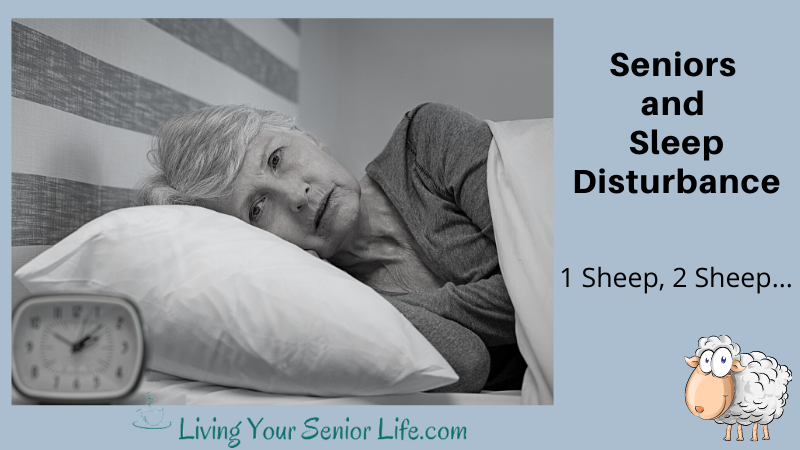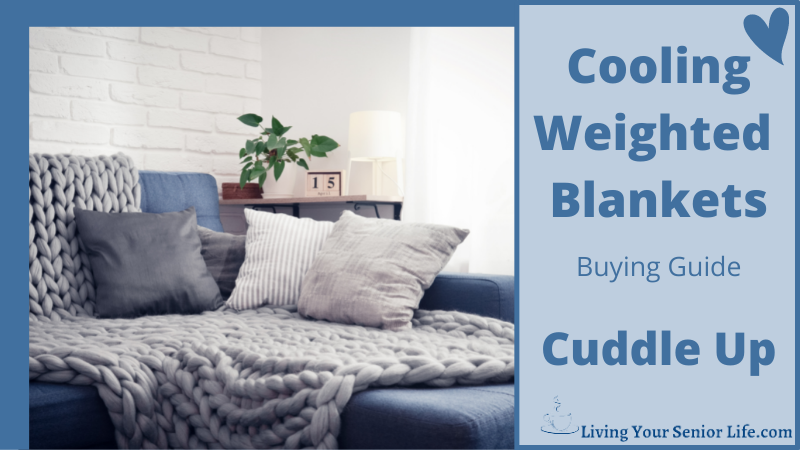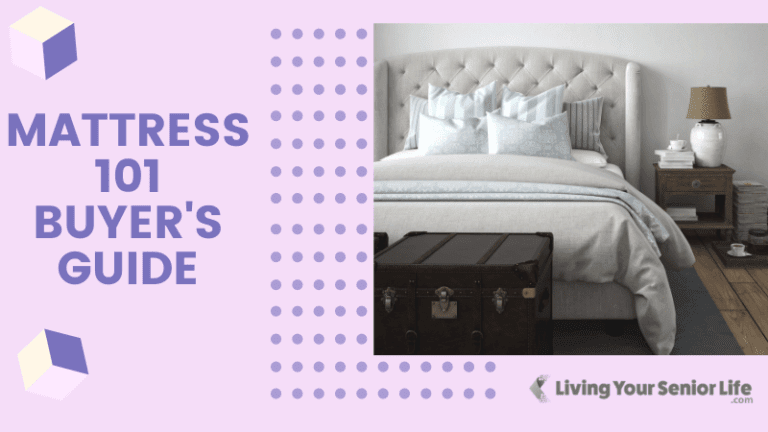Sleep disorders are a common problem among adults, affecting millions of people worldwide. They can be caused by a variety of factors, including lifestyle habits, medical conditions, and mental health issues. Sleep disorders can have a significant impact on your overall health and well-being, affecting your mood, energy levels, and cognitive function.
Understanding the different types of sleep disorders and their causes is the first step in managing and treating them. Common sleep disorders in adults include insomnia, sleep apnea, restless leg syndrome, and narcolepsy, among others. Each of these disorders has its own set of symptoms and treatment options, and it is essential to work with your healthcare provider to determine the best course of action for your individual needs.
Let’s take a look at some sleep disorders and reasons that could be the culprit, and rest assured (pun intended) I’ll give you some options to combat those sleepless times.
Key Takeaways:
- Sleep disorders are a common problem among adults and can have a significant impact on your overall health and well-being.
- Understanding the different types of sleep disorders and their causes is the first step in managing and treating them.
- Common sleep disorders in adults include insomnia, sleep apnea, restless leg syndrome, and narcolepsy, among others.
Understanding Sleep Disorders

A sleeping disorder, also known as a sleep disorder or sleep condition, is a medical condition that disrupts a person’s normal sleep patterns. Sleep is a crucial component of overall health and well-being, and when it is consistently disrupted, it can lead to a wide range of physical, emotional, and cognitive problems. Sleeping disorders can affect people of all ages and can vary in severity, however, they are more common in adults.
Video: Sleep Disorders In Adults
Types of Sleep Disorders
This section will explore several types of sleep disorders.
Insomnia
One of the most common types of sleep disorders is insomnia. Insomnia is characterized by difficulty falling asleep or staying asleep, or waking up too early in the morning. It can be caused by stress, anxiety, depression, or other medical conditions.
Insomnia has two classifications, acute and chronic.
- Acute insomnia is short-lived and may occur several nights for a few weeks.
- Chronic insomnia is when you suffer insomnia for three or more nights in a week, lasting for more than three months.
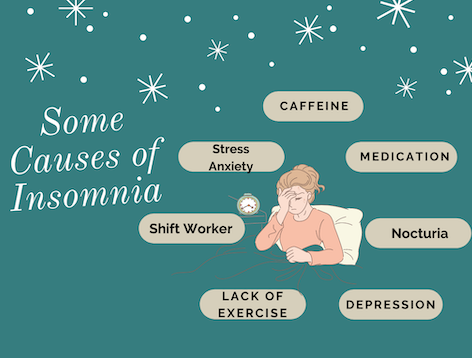
Caffeine
Caffeine has a short life, meaning 80% of caffeine leaves the body within 8-10 hours. So if you’re consuming caffeine in the afternoon and evening, it can interfere with your falling asleep.
Medications
As we age, many times, there is an increase in the number of medications we take. If you take medications and suffer from insomnia or sleep disturbances, talk to your doctor. Many times there are alternative medications you can take that may not interfere with sleep.
Please don’t stop taking any medication that your doctor has prescribed or suggested until you talk to him/her, as that can be dangerous.
Some medicines that may interfere with sleep are:
- Alpha and beta-blockers – are used to control high blood pressure, rheumatoid arthritis, gout, angina, glaucoma, and other ailments.
- Ace Inhibitors – Two ailments that ace inhibitors are used for are congestive heart failure and high blood pressure.
- Glucosamine – Used for joint pain and inflammation.
- Antidepressants
- Corticosteroids – Commonly used for inflammation, allergic reactions, lupus, rheumatoid arthritis, and gout.
- Cholinesterase Inhibitors – Used for memory problems, especially as seen in dementia and Alzheimer’s disease.
- Antihistamines
- Statins – Used in the treatment of high cholesterol.
- Nicotine Replacement Products
- Thyroid Hormone
- Diuretics – sometimes used in the treatment of high blood pressure.
Nocturia
Nocturia, a common medical condition, is characterized by the need to wake up during the night to urinate. It is more prevalent among older individuals, but it can affect people of all ages. Nocturia can disrupt a person’s sleep patterns, leading to fatigue, reduced quality of life, and potential health issues. The condition can be caused by various factors, including an overactive bladder, an enlarged prostate in men, urinary tract infections, and even certain medications.
Depression and Stress
Depression is a common cause of insomnia. Though an increase in sleep is seen in some people with depression, studies show that 80% of people experiencing depression have trouble falling or staying asleep.
Stress is a major factor that can disrupt your sleep. When you are under stress, your body releases hormones that can keep you awake and make it difficult to fall asleep. This can lead to chronic sleep problems if not addressed.
Lack of Exercise
As we get older, we tend not to get out and move as we once did. If you think back on the days of childhood, we were always on the go. We loved to play outside, and we had recess at school; it seemed like we needed no excuse to get up and move.
As adults, when we go to work, we might have a desk job that requires minimal walking. If we are retired or stay at home most of the day, we get minimal exercise.
Sleep Apnea
Sleep apnea is a disorder in which you stop breathing for short periods during sleep. There are two types of sleep apnea: obstructive sleep apnea and central sleep apnea. Obstructive sleep apnea is caused by the collapse of the airway, while central sleep apnea is caused by a failure of the brain to signal the muscles to breathe.
Sleep Apnea is not insomnia but could cause the middle of the night awakenings.
Some signs of obstructive sleep apnea are chronic snoring, difficulty breathing/gasping for breath and choking.
If you do have sleep apnea or suspect you might, this should be taken seriously, and a doctor should check you out, as it can be deadly.
Restless Legs Syndrome
Restless legs syndrome is another common sleep disorder. It is characterized by an irresistible urge to move the legs, especially at night. This can lead to difficulty falling asleep and staying asleep.
There are many types of RLS, but the most common form affects about 1 in 25 people. Symptoms typically start after age 50 but can also occur at any age.
Narcolepsy
Narcolepsy is a sleep disorder that causes excessive daytime sleepiness. It can also cause sudden muscle weakness or paralysis, and hallucinations.
Circadian Rhythm Sleep-Wake Disorder
Circadian rhythm sleep-wake disorders are a group of disorders in which the sleep-wake cycle is disrupted such as found in shift workers and persons experiencing jet lag. Shift work disorder is a disorder in which you have difficulty sleeping because of your work schedule. Jet lag is a temporary circadian rhythm sleep-wake disorder that occurs when you travel across time zones.
Parasomnias
Parasomnias are a group of disorders in which abnormal movements or behaviors occur during sleep. Sleepwalking, night terrors, nightmares, and REM sleep behavior disorder are all examples of parasomnias.
Causes of Sleep Disorders
There are many factors that can contribute to sleep disorders in adults. Some of the most common causes include stress, aging, medical conditions, allergies, chronic pain, arthritis, diabetes, and pregnancy.
Stress is a major factor that can disrupt your sleep. When you are under stress, your body releases hormones that can keep you awake and make it difficult to fall asleep. This can lead to chronic sleep problems if not addressed.
As you age, your sleep patterns may change. You may find that you wake up more frequently during the night or have trouble falling asleep. This is because the body produces less of the hormone melatonin as you get older.
Allergies and chronic pain can also disrupt your sleep. Allergies can cause nasal congestion and other symptoms that make it difficult to breathe at night.
Arthritis can also cause sleep problems. The pain and stiffness associated with arthritis can make it difficult to get comfortable and stay asleep.
Finally, pregnancy can cause sleep problems due to hormonal changes and physical discomfort. Many pregnant women experience insomnia, restless legs syndrome, and other sleep disorders during pregnancy.
Overall, there are many factors that can contribute to sleep disorders in adults. If you are experiencing sleep problems, it is important to speak with your doctor to determine the underlying cause and find an effective treatment.
Sleep Disorders and Other Health Conditions
Sleep disorders can be related to other health conditions. In the United States, sleep disorders are a significant public health concern. According to the Centers for Disease Control and Prevention (CDC), insufficient sleep is associated with a range of health problems, including obesity, diabetes, cardiovascular disease, and mortality.
If you have a health condition that affects your sleep quality, it is essential to talk to your healthcare provider about treatment options. They can help you develop a plan to manage your symptoms and improve your sleep quality.
Effects of Sleep Disorders
Sleep disorders can have a significant impact on your overall health and well-being. Poor sleep quality can lead to a wide range of negative effects, including mood disorders, relationship problems, irritability, lack of energy, poor performance, and safety issues.
One of the most common effects of sleep disorders is a decrease in overall quality of life. When you don’t get enough sleep, you may feel tired and lethargic throughout the day, making it difficult to enjoy your daily activities. This can lead to feelings of frustration, anxiety, and depression.
Sleep disorders can also have a significant impact on your mood. People who suffer from sleep disorders are more likely to experience mood swings, irritability, and anxiety. They may also have difficulty concentrating and may feel less motivated to engage in social activities.
Relationship problems are another common effect of sleep disorders. When you’re tired and irritable, it can be difficult to maintain healthy relationships with your partner, friends, and family members. This can lead to feelings of isolation and loneliness, which can further exacerbate your sleep problems.
Lack of energy is another common effect of sleep disorders. When you don’t get enough sleep, you may feel sluggish and lethargic throughout the day. This can make it difficult to perform at your best, both at work and in your personal life.
Poor performance is another effect of sleep disorders. When you’re tired, you may find it difficult to concentrate and may struggle to perform even simple tasks. This can lead to decreased productivity at work and poor academic performance.
Safety issues are also a concern for people with sleep disorders. When you’re tired, you’re more likely to have accidents or make mistakes that could put yourself or others in danger. This is especially true if you operate heavy machinery or drive a vehicle.
Finally, sleep disorders can have a significant impact on your overall health. Chronic sleep deprivation has been linked to a wide range of health problems, including obesity, diabetes, heart disease, and stroke. If you’re experiencing sleep problems, it’s important to talk to your doctor and find a treatment plan that works for you.
Sleep Disorders and Mental Health
Sleep disorders can have a significant impact on mental health. In fact, people with sleep disorders are at a higher risk of developing mental health disorders such as depression, anxiety, and stress.
Depression is a common mental health disorder that affects many people with sleep disorders. Insomnia, in particular, has been linked to depression. Lack of sleep can affect mood, making people more irritable and prone to negative thinking.
Anxiety is another mental health disorder that is commonly associated with sleep disorders. People with anxiety often have trouble falling asleep or staying asleep. This can lead to a vicious cycle where lack of sleep makes anxiety worse, and anxiety makes it harder to sleep.
Stress is also a significant factor in sleep disorders. Stressful life events, such as job loss or divorce, can cause sleep problems. Chronic stress can also lead to sleep disorders, such as insomnia.
It’s important to seek treatment for both sleep disorders and mental health disorders. Treatment for sleep disorders can improve mental health, and treatment for mental health disorders can improve sleep. If you’re experiencing symptoms of a sleep disorder or a mental health disorder, talk to your healthcare provider. They can help you find the right treatment to improve your sleep and mental health.
Symptoms and Diagnosis
The most common symptom of a sleep disorder is excessive daytime sleepiness (EDS), which is a feeling of tiredness or sleepiness during the day. If you’re feeling tired or sleepy during the day, it could be a sign of a sleep problem. Other symptoms of sleep disorders include difficulty falling asleep or staying asleep, waking up too early, snoring, gasping for air during sleep, and feeling restless during sleep.
If you’re experiencing any of these symptoms, it’s essential to see a doctor for a diagnosis. Your doctor may conduct a physical exam and ask you about your medical history and sleep habits. They may also recommend a sleep study, which is a test that measures your brain waves, breathing, and other body functions during sleep. Two common types of sleep studies are polysomnography and the multiple sleep latency test.
Polysomnography is a test that records your brain waves, heart rate, breathing, and eye movements while you sleep. This test can help diagnose sleep disorders such as sleep apnea, narcolepsy, and restless legs syndrome.
The multiple sleep latency test measures how quickly you fall asleep during the day. This test is used to diagnose narcolepsy, a sleep disorder that causes excessive daytime sleepiness.
In summary, if you’re experiencing symptoms of a sleep disorder, it’s essential to see a doctor for a diagnosis. Your doctor may recommend a sleep study, such as polysomnography or the multiple sleep latency test, to help diagnose your sleep problem.
Solutions Please
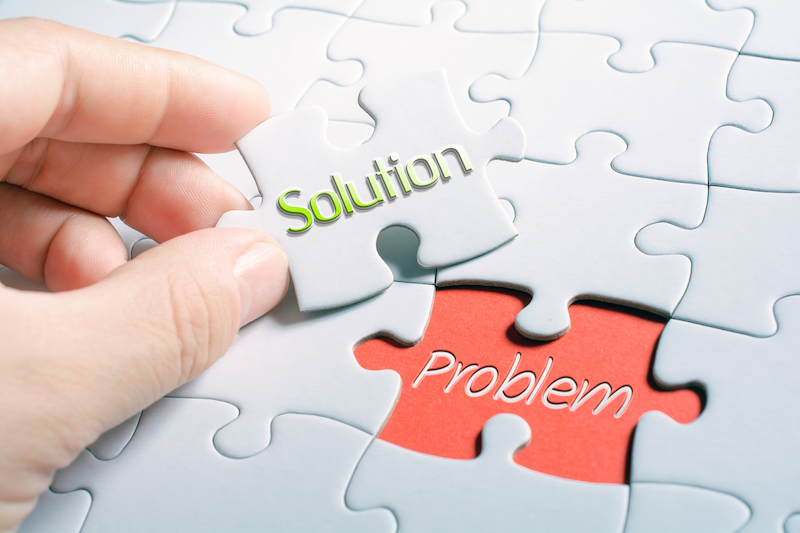
If you are diagnosed with a sleep disorder, there are various treatments and management options available to you. The choice of treatment will depend on the type and severity of the disorder. Here are some common treatments and management strategies that may be recommended:
Sleep Disorders Specialist
A sleep disorders specialist can provide advice on the management of chronic insomnia as well as sleep-related behavioral problems.
A specialist should be sought out, especially if you are experiencing excessive daytime sleepiness.
Cognitive Behavioral Therapy (CBT)
Cognitive behavioral therapy (CBT) is a type of psychotherapy that enables you to understand the thoughts and behaviors that lead to sleeplessness. These thoughts and behaviors are then changed, leading to improved sleep quality.
Medications
Medications are often used to treat sleep disorders, including insomnia, sleep apnea, and restless leg syndrome. Some of the commonly prescribed medications include benzodiazepines, non-benzodiazepine hypnotics, and melatonin supplements. However, it is important to note that medications should be used under the guidance of a healthcare professional, as they can have side effects and risks.
Gabapentin
Gabapentin is a medication that is commonly used to treat seizures and nerve pain. It may also be used to treat sleep disorders such as restless leg syndrome and insomnia. However, more research is needed to determine its effectiveness for these conditions.
Melatonin
Melatonin is a hormone that regulates the sleep-wake cycle. It is available as a supplement and is commonly used to treat insomnia and jet lag. However, the effectiveness of melatonin supplements for sleep disorders is still a subject of debate, and more research is needed.
Sodium Oxybate
Sodium oxybate is a medication that is used to treat narcolepsy. It helps improve nighttime sleep and reduce daytime sleepiness. However, it can have side effects and risks, and should only be used under the guidance of a healthcare professional.
Stimulants
Stimulants such as caffeine and modafinil can be used to treat excessive daytime sleepiness caused by sleep disorders such as narcolepsy. However, stimulants should be used with caution, as they can have side effects and risks.
Surgery
Surgery may be recommended for sleep disorders such as sleep apnea, particularly if other treatments have been unsuccessful. However, surgery is usually considered a last resort and is only recommended in severe cases.
Lifestyle Modifications
Making lifestyle modifications can help improve your sleep quality and reduce the likelihood of sleep disorders. Here are some changes you can make to your daily routine:
- Establish a regular sleep schedule: Go to bed and wake up at the same time every day, even on weekends. This helps regulate your body’s internal clock and improve sleep quality.
- Create a relaxing bedtime routine: Take a warm bath, read a book, or listen to calming music before bed to help your mind and body relax and prepare for sleep.
- Limit caffeine and alcohol intake: Caffeine is a stimulant that can interfere with sleep, so avoid consuming it in the afternoon and evening. Caffeine usually leaves the body within 8-10 hours after consumption. So if you’re having a cup or two of coffee in the morning, that shouldn’t be affecting your sleep. However, if you’re having coffee or some other type of food or drink containing caffeine later in the afternoon or evening, this could be the culprit and should be limited.
- Some people don’t realize that there is caffeine in products other than coffee, tea, and soda. Chocolate has caffeine, as do some ice cream and even decaffeinated coffee.
- Alcohol may help you fall asleep faster, but it can disrupt your sleep later in the night.
- Exercise regularly: Regular physical activity can help improve sleep quality, but avoid exercising too close to bedtime as it may interfere with sleep.
- Avoid napping: If you have trouble sleeping at night, avoid napping during the day as it may make it harder to fall asleep at night.
- Create a comfortable sleep environment: Keep your bedroom cool, dark, and quiet to promote a restful sleep environment. Sleeping in a quiet room that isn’t too hot or too cold may help improve sleep. The ideal room temperature for sleep lies somewhere between 62-70 degrees. For the elderly, the ideal sleeping room temperature is 66 to 70 degrees. Temperatures that are lower or higher than this can cause a disturbance in the sleep cycle.
By making these lifestyle modifications, you can improve your sleep quality and reduce the likelihood of sleep disorders.
Miscellaneous Tips
Eye Mask
Eye masks can provide a better sleep environment by keeping light out. If you have a nightlight or even a clock by your bedside that gives off light, this can interfere with sleep. Eye masks are relatively inexpensive, convenient for travel, and have no side effects.
Food
Some foods found to help with the difficulty of falling asleep are:
- Walnuts – contain melatonin – a sleep hormone
- Fatty Fish
- Turkey – think Thanksgiving
- White Rice
- Milk – Contains tryptophan (the same amino acid found in turkey)
- Cherry Juice – boosts levels of melatonin
- Bananas
- Pretzels
When eating before bedtime, remember you don’t want a lot; just a small amount will do.
Journaling
Keeping a journal will allow you to put to rest those pesky thoughts instead of having them go through your head over and over again as you’re trying to nod off. Jot down those racing thoughts; maybe what happened during the day that upset you that keeps running through your mind as you’re trying to go to sleep; perhaps a list of things to do tomorrow. Some people like keeping a gratitude journal, listing five things they have to be grateful for.
Lights
Light interferes with the production of melatonin (the sleep hormone). Turn off those lights, including bright bedside lamps, TVs, computers, iPhones, and tablets.
Progressive Relaxation
To use this method, you start at your feet and contract and squeeze one foot and, count to ten, then relax. Then you contract and squeeze the other foot while counting to ten and then relax. Don’t forget to breathe.
You make your way all through your body one part at a time – calves, thighs, abs, buttocks, arms, neck, back, jaw, forehead, and so on. Some people prefer working from their forehead down to their feet instead. Either way is acceptable.
Warm Bath
A warm bath will relax you and help lower your body temperature to make it more conducive to sleep. How this occurs is when you come out of the bath, the air feels cool and thus reduces your body temperature signaling your body it’s time to sleep.
White Sound
Some machines produce what is called “white noise.” White noise helps you sleep in two ways:
- It blocks distracting noises.
- It produces relaxing sounds that help induce sleep.
One study found that a white noise machine helps some sleep as much as medication.
FAQs
What are the symptoms of a neurological sleep disorder?
Symptoms of a neurological sleep disorder can include excessive daytime sleepiness, irregular breathing during sleep, and abnormal movements or behaviors during sleep. These disorders can also cause disruptions in sleep patterns and lead to insomnia.
What is the most serious sleep disorder?
The most serious sleep disorder is sleep apnea. It is characterized by pauses in breathing during sleep, which can lead to decreased oxygen levels in the body. Sleep apnea is associated with an increased risk of heart disease, stroke, and other health problems.
What is the most common sleep disorder in adults?
The most common sleep disorder in adults is insomnia. It is characterized by difficulty falling asleep or staying asleep, waking up too early, or feeling tired upon waking up.
Additional Reading
Good Night All

In conclusion, sleep disorders in adults are a common problem and they can have a significant impact on your quality of life. However, with proper diagnosis and treatment, most sleep disorders can be managed effectively. If you are experiencing any sleep disturbances, it is essential to speak with your healthcare provider to determine the underlying cause and develop a treatment plan that works for you.
Tell us your experience with insomnia and any solutions that have or haven’t worked for you. Please comment below.
